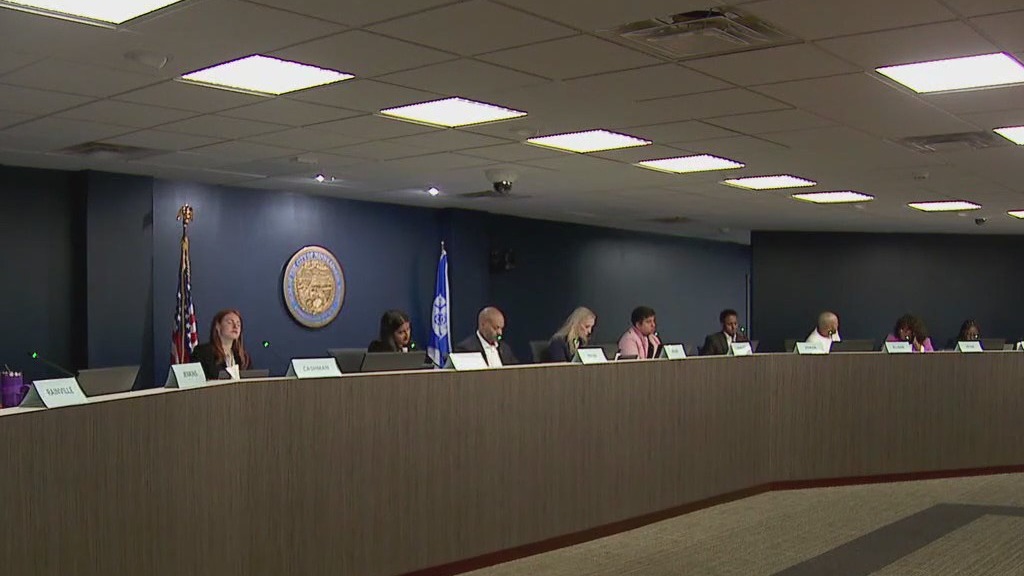Minneapolis rideshare ordinance recalled by council after Legislature passes proposal

Mpls City Council celebrate Uber/Lyft bill passing
Some Minneapolis City Council members are celebrating the passing of the bill that raised the payrate for Uber and Lyft drivers, while one council member criticized. FOX 9's Karen Scullin has the latest.
MINNEAPOLIS (FOX 9) - The Minneapolis City Council has recalled its "transportation rideshare worker protection ordinance" – guaranteeing minimum wages for drivers of companies such as Uber and Lyft – less than a week after the Minnesota Legislature passed its statewide proposal over the weekend.
The vote on Thursday came after Uber and Lyft threatened to leave Minnesota over the city's ordinance that would have required a steeper minimum wage for drivers.
The proposal approved by Minnesota lawmakers would have overridden the Minneapolis council’s proposal, and as a result, Uber and Lyft say they will continue to operate in Minnesota.
"This is a celebratory day for a number of us. We had hundreds of drivers come to city hall to repeatedly tell us about their poverty wages," said council member Robin Wonsley on Thursday while giving a visibly emotional speech. "I’m proud to say 18 months later we are celebrating the fruits of that labor with state leaders because we worked together to give them a statewide policy that gives them nearly a 20% raise… Because of you all holding strong and not succumbing to corporate pressure, drivers won this statewide victory."
However, council member Linea Palmisano took a more pragmatic approach to any celebration, lamenting the process that led to the outcome.
"I’m glad to see my colleagues pleased with this result, and I’m glad to see your tears of happiness. I think this was a good result, though the process to get here was a wild ride," Palmisano said on Thursday. "Ten of my colleagues chose to disregard the data recommendations from the Minnesota Department of Labor Industry’s wage study, and instead passed rates based on one week of data from Seattle. Despite warnings… My colleagues proceeded hastily and recklessly. My colleagues ignored the concerns of their constituents who rely on these services. So when I hear my colleagues claim victory, I need to call their bluff."
Palmisano alleged the rideshare ordinance consumed "so much time from legislators," that it resulted in the unsettled bonding bill at the end of the session.
"That comes at a cost to all Minnesotans… This required the legislature to come in and save the city from the consequences of its own ordinance," Palmisano said. "The statewide rates result in a 14% raise for drivers – identical to the rates they would have received, with Mayor Frey’s proposal months ago… Sadly, throughout this whole process it seemed many of my colleagues were more focused on other things than sound policymaking. We were elected to represent every voice – not just the loudest ones."
How'd we get here?
![Minneapolis City Council members on MN rideshare policy [RAW]](https://m107833-mcdn.mp.lura.live/iupl/340/C52/340C52DD32A688F9BA3777AAD8353CC5.jpg?Expires=2082758400&KeyName=mcpkey1&Signature=vnG8QwQ_J3mnb1ua1PsFujS4n9Y)
Minneapolis City Council members on MN rideshare policy [RAW]
Minneapolis City Council members held a press conference Thursday on a statewide rideshare policy passed by the Minnesota Legislature that overrode the city's rideshare ordinance.
In March, the Minneapolis City Council approved an ordinance, overriding a veto by Mayor Frey, requiring ride-hailing companies to pay $1.40 per mile and 51 cents per minute to drivers. In response, Uber and Lyft threatened to end service in Minneapolis when the ordinance went into effect on May 1.
The companies later countered, backing a rate proposed in a state study on ride-hailing driver wages: 89 cents per mile and 49 cents per minute. It should be noted that the state study found that ride-hailing app drivers made below minimum wage when accounting for expenses – though the apps have been critical of the accuracy of said study.
The Minneapolis City Council eventually delayed the implementation of its ordinance until July 1, to allow more time to tweak the ordinance. Some council members also hoped the delay would give new ride-hailing app startups time to get up and running.
At the same time, state lawmakers were working on a compromise bill that would set a rate for drivers statewide. On May 6, lawmakers announced a "compromise" that would pay drivers $1.27 per mile and 49 cents per minute. Again, Uber and Lyft balked, saying they would leave the entire state if those rates went into effect. Though some legislative leaders felt this was a bluff by the companies to continue negotiations, pointing to the fact that Uber and Lyft already operate in other jurisdictions with the same or higher rates for drivers.
After further negotiations over the weekend, lawmakers reached a new deal: $1.28 per mile but only 31 cents per minute. Uber and Lyft both issued statements on Sunday, saying the agreed-upon rate would be enough to keep the companies operating in Minnesota.

